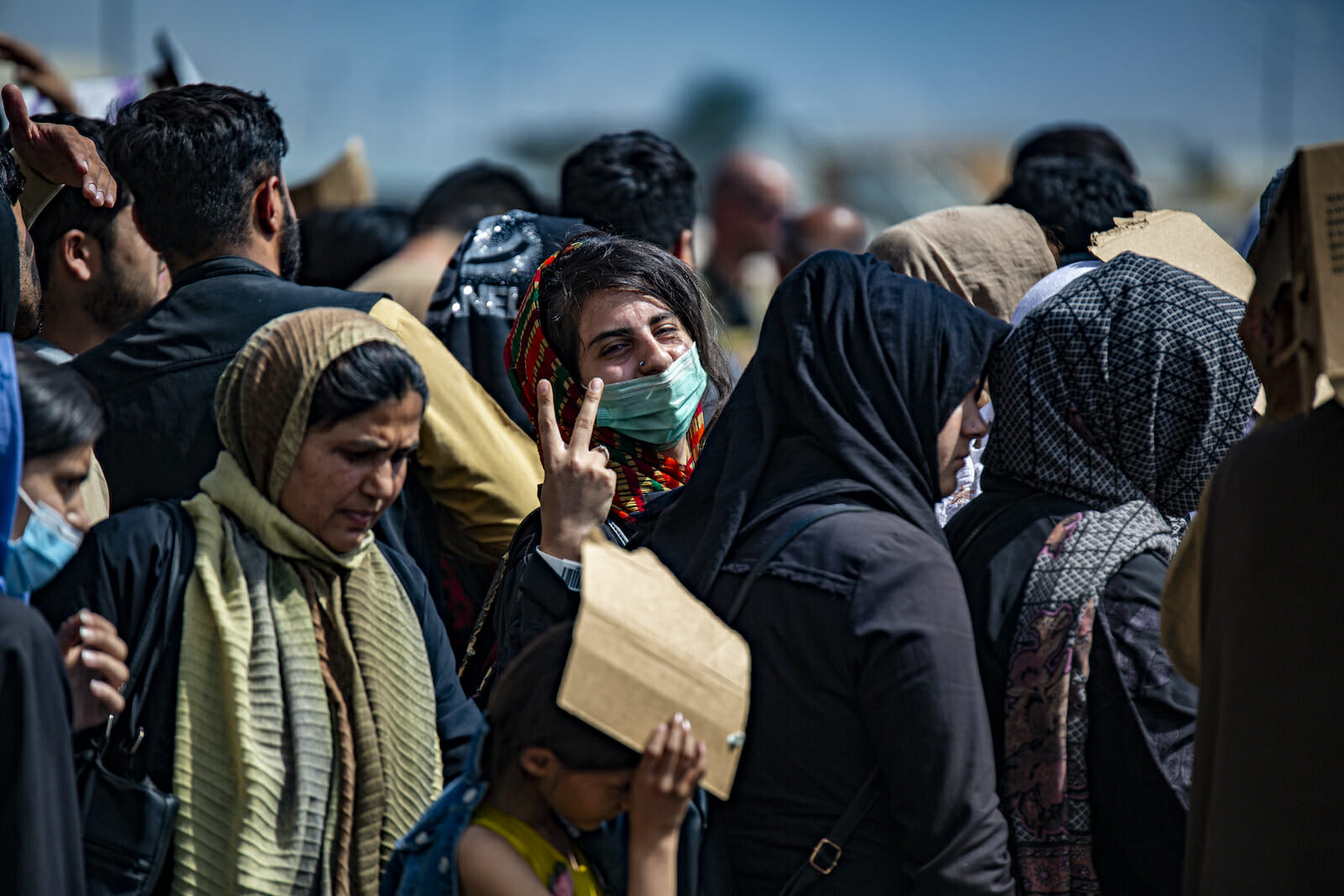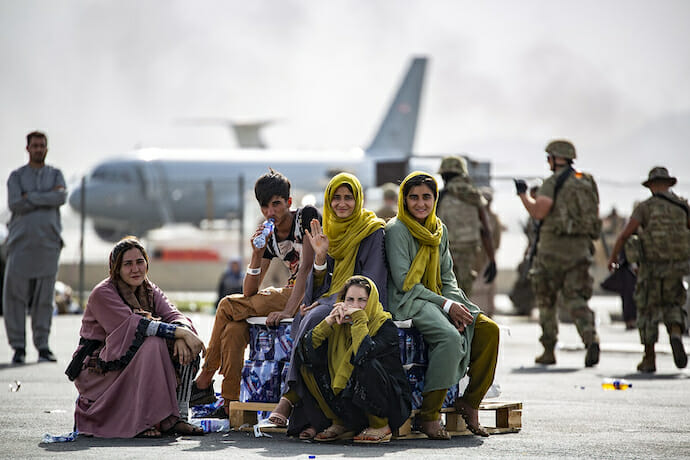
Weaponised Refugees and Hybrid Attacks
Refugees and asylum seekers provide rich pickings for demagogues and political opportunists. The Australian approach politicises their plight by arguing that they are illegitimate depending on the way they arrive, namely, by boat. The twentieth anniversary of the MV Tampa’s attempt to dock at Christmas Island with over 400 such individuals inaugurated a particularly vicious regime. Intercepted by Australia’s SAS forces in August 2001, it presented the Howard government with a stupendously cruel chance to garner votes. And my, did that government garner them with gusto.
Various European countries have also adopted an approach akin to this: naval arrivals from the Middle East and Africa are to be contained, detained, and preferably processed in third countries through a range of agreements. The common theme to all: firm border controls and deterrence.
Belarus has added another option to the armoury of refugee use and abuse. The country, under Alexander Lukashenko, has hit upon a shoddy plan to harry countries sympathetic to his opponents and responsible for imposing sanctions upon his regime: swamp them. First: entice refugees and migrants from a number of countries – Iraq, Iran, Afghanistan, Syria, and Cameroon – to arrive on tourist visas. Mobilise said people to move across the Polish, Lithuanian and Latvian borders.
Descriptions have been offered for the strategy. Gabrielius Landsbergis, Lithuania’s foreign minister, considers the act on the part of Belarus as a “hybrid war operation” that threatens, he claimed with dramatic effect, “the entire European Union.” In July, he told Deutsche Welle that the refugees concerned were being used as “human shields” and a type of “hybrid weapon.” Lithuanian Deputy Interior Minister Arnoldas Abramavičius resented his country’s border guards “acting as a kind of hotel reception for the migrants for a long time. That had to stop.”
Member states have been sharing experiences on how best to deal with the surge in these Lukashenko arrivals. In a meeting between Landsbergis and Nikos Dendias, his Greek counterpart, in June, much solidarity was felt in discussing how to combat a common threat. Human rights proved to be less important than territorial integrity and European defence. As the Lithuanian foreign ministry stated, both ministers “underscored the importance of European solidarity and the need to pay attention to the processes in the EU neighbourhood, as well as to be ready to respond to dangerous threats emerging from the EU’s neighbourhood.”

Guards along the Lithuanian border had, up till August, intercepted approximately 4,100 refugees and asylum seekers this year alone. Last year, that number was a mere 81. The numbers prompted the Baltic state to declare a state of emergency in July. The resources of Frontex, that less-than-transparent body otherwise known as the European Border and Coast Guard Agency, deployed personnel with haste that same month to aid policing the border with Lithuania and Latvia.
According to Frontex, the initial support would involve “border surveillance and other border management functions. The operation will start with the deployment of 10 officers with patrol cars, and their numbers will be gradually increased.”
Fabrice Leggeri, the agency’s executive director, was brimming with praise for the organisation’s military-styled prowess, suggesting aid in the face of threatening barbarians at the frontier of Europe. “The quick deployment in support of Lithuania and Latvia highlights the value of the Frontex standing troops, which allows the Agency to quickly react to unexpected challenges, bringing European solidarity to support Member States at the external borders.”
Humanitarianism is the last thing on Leggeri’s mind as he speaks about the role of “additional border guards and patrol guards by Frontex” as they “work side-by-side with their Latvian and Lithuanian colleagues” to “protect our external borders” in common cause.
Earlier this month Poland joined Lithuania with alarmist fervour, declaring a state of emergency. It served the purpose of needlessly militarising the situation even as it appealed to the inner jingo. Tellingly, it is the first such order since the country’s communist era, proscribing mass gatherings and limiting people’s movements within a 3 km strip of land along the frontier for 30 days. Marta Anna Kurzyniec, a resident of the Polish border town of Krynki, described an atmosphere that was “generally violent.” There were “uniformed, armed servicemen everywhere…it reminds me of war.”
To the use of troops can be added such inhospitable barriers as the construction of a 508 km razor-wire fence by the Lithuanian authorities. Ingrida Šimonytė, Lithuania’s prime minister, considered it an essential part of her country’s strategy of repelling unwanted arrivals. “The physical barrier is vital to repel this hybrid attack, which the Belarus regime is undertaking against Lithuania.”
Political figures such as Poland’s Prime Minister Mateusz Morawiecki and Lithuania’s Landsbergis have also encouraged disseminating stern messages of disapproval to those trying to enter their countries. “We need to inform the people that they are being lied to,” huffed Landsbergis. “They are being promised an easy passage to Europe, a very free life in Europe. This is not going to happen.” Morawiecki, despite claiming some sympathy for “the migrants who have been in an extremely difficult situation” felt that “it should be clearly stated that they are a political instrument.”
The situation has also seen the European Court of Human Rights make a much-needed appearance in its request that both Poland and Latvia “provide all the applicants with food, water, clothing, adequate medical care and, if possible, temporary shelter.” The Court, however, wanted it known “that this measure should not be understood as requiring that Poland or Latvia let the applicants enter their territories.”
The Polish government, for its part, insists that their hearts have not hardened, dabbling in its own bit of dissembling for the press. As a spokeswoman for the interior ministry claimed, “These people are on the Belarusian side of the border.”
The manipulation of such human traffic created its fair share of bestial realities ignoring the fundamentals of the UN Refugee Convention and an assortment of international instruments, including the Geneva Convention. This is particularly so regarding a number of Afghan refugees who find themselves stuck at Usnarz Gorny, 55 km east of Bialystok. “They’re the victims of the political game between countries,” came the accurate assessment from Amnesty International Poland’s Aleksandra Fertlinska. “But what is the most important is that it doesn’t matter what is the source of this political game. They are refugees, and they are protected by [the] Geneva Convention what we need to do is accept them.”
One Iraqi refugee by the name of Slemen, finding himself in the drenched environs of Rūdninki, some 38 kilometres from the Lithuanian capital Vilnius, offers his own relevant observation. “Just because we came through Belarus doesn’t make us bad people,” he explained to Der Spiegel. But bad he, and his fellow travelers, are being made out to be by states who overlook the compassion of processing claims in favour of an instinctive politics stressing deluge and threat rather than salvation and hope.

